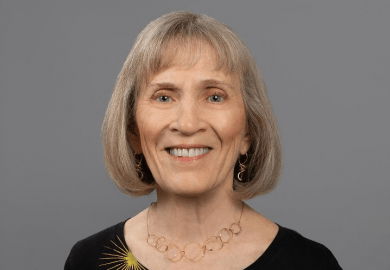In 1976, an economics professor at the University of Chittagong in Bangladesh, decided to take action and help 42 hardworking but severely impoverished individuals at the nearby village of Jobra, by lending them a total of $. Twenty-two years later, micro-credit programmes in 50 countries around the world have loaned some $2.2 billion to the poorest of the poor. Banker to the Poor tracks the development of an "eccentric" idea, namely micro-credit, into the basis for international practice regarding poverty eradication.
Muhammad Yunus, a Bangladeshi who studied and taught economics in the United States, narrates a compelling story in his autobiography. He tells of his increasing feelings of inadequacy and frustration at teaching "elegant" economic theory, while around him, in his newly founded country, people were dying of starvation.
The author's primary thesis is that credit is a basic human right, and should therefore be available to all, in particular to the very poor, who in most cases have insufficient collateral to secure loans from banks and are thus unable to break the cycle of poverty. Encountering numerous obstacles in implementing his idea of directing loans to the poor via the traditional banks, Yunus created his own "Grameen Bank" (gram meaning village), with branches located in small rural settlements.
"Lending circles" represent the heartbeat of micro-credit enterprise, with groups of five individuals working together to oversee and guarantee their own loans. Tantamount to this is the notion of shared or reciprocal responsibility: if one defaults, then all are held responsible. Profits, too, are shared, providing a mutual impetus to a system that has manifested multiple positive social repercussions since its inception in 1976.
Most micro-credit borrowers are women; women who continue to be a marginalised, latent force in so many communities today. Micro-credit's endowment of women with economic power has profoundly affected their status, providing a focus for increased self-confidence, independence and the achievement of equality on every level. Micro-credit, then, represents a fundamental challenge to existent gender relations in many societies.
Women in developing countries generally have less access to capital than men, are of inferior social status, and have less involvement in major family decisions. It is, however, women who deal with day-to-day domestic affairs, making ends meet in providing for the family. As a result, women often possess superior business acumen and the ability to prioritise better than their spouses, and are more likely to use their money for the benefit of their children. Logically, then, more than 90 per cent of micro-credit loans in Bangladesh today are offered to women, thereby facilitating the renegotiation of gender imbalances.
Clearly, the idea of micro-credit has captured attention on the world stage and Yunus has been instrumental in achieving this. On a note of caution (one shared by Yunus), grant funds, such as those normally available from donor agencies, can be damaging to the health of the development of micro-credit if applied too liberally and without concern for the effects on the micro-financial institutions themselves.
Their long-term sustainability depends on gaining access to commercial funds, not on becoming dependent on grants. Their capital requirements are best met through the market from commercial sources. The problem, therefore, is how to use public funds effectively to encourage partnerships between large commercial sources of funds and effective micro-financial institutions. Although some institutions perform better than the commercial banks, there is still scope for grant funds to help those weaker ones build their capacity for management and to reach the poor more effectively.
The book is directed on the one hand at a professional readership, at those working closely with issues of development assistance, and on the other at a far wider audience, one interested in the eradication of poverty on a global scale. With numerous references to case studies, Banker to the Poor offers a range of vivid insights into both the author's own motivations and the inspiration behind the development of his micro-credit system.
His profound sense of social responsibility, which leads him to shun a detached academic life, is repeatedly illustrated in both his autobiography and his system of credit. We are granted access to an individual genuinely concerned with the fate of the poor, one whose pragmatic insights into the processes of the world economic system contribute hugely to a "grass-roots" model for development.
Yunus's micro-credit system extends to a whole range of social concerns, such as gender and social equality, birth control, education, hygiene, sanitation, housing, communications and environmental concerns. In so many ways, the author's brainchild has revolutionised community relations through making credit available to those previously considered beyond (or below) the reach of conventional systems.
But all is not rosy in the world of micro-finance. An inexpensive programme that directly touches poor people and develops self-reliance and entrepreneurial skills is of enormous appeal, but is no substitute for health and education schemes that tackle poverty at its most basic level. Yunus understands this and has tried to remedy the situation by branching out in complementary directions, with Grameen Energy, Grameen Phone or the establishment of a Grameen Health Care system. But as much as it can expand, micro-credit cannot replace all sectors of development assistance implemented by governments, donors, and international institutions.
Micro-credit's major attraction is its simplicity, its direct impact on so many of the world's poorest families. It is, however, an extremely labour-intensive activity, and to set a target of reaching 100 million poor families through micro-credit programmes by 2005 is to presume the presence of some 540,000 field-workers, a real change of scale of operations. Exactly how that demand is to be met is another matter entirely.
Poverty alleviation is now a political priority of the European Union and of other donors and international organisations. The Maastricht Treaty clearly sets out the goal of fostering the campaign against poverty in the developing world. A concerted effort is necessary by all partners involved - donor countries, recipient countries (governments and civil society) and international agencies - to attain this far-reaching goal.
The timing of this publication coincides with the award of the Nobel prize in economics to another gifted Asian economist, Amartya Sen. Social scientists in Asia have taken the lead in changing the way we think about development, and especially the way we can approach the goal of eradicating poverty. Often leaving academia in order to pursue the application of their theories, as in the case of Yunus, they have been able to find practical ways of empowering the poor to escape their condition. Development historians in the future will reflect on the reasons why this particular movement arose in Asia.
Philip Lowe is director-general for development, European Commission, Brussels.
Banker to the Poor: The Autobiography of Muhammad Yunus, Founder of the Grameen Bank
Author - Muhammad Yunus with Alan Jolis
ISBN - 1 85410 577 9
Publisher - Aurum
Price - £ 20.00
Pages - 313



